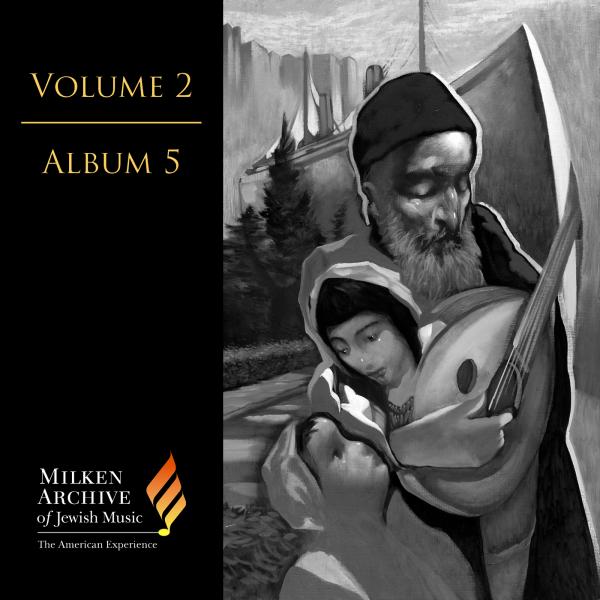Tracks
Track |
Time |
Play |
| Drinking Song | 01:04 | |
| Nature's Quiet | 00:43 | |
| Love's Desire | 00:55 | |
| Winter is Past | 00:36 | |
| A Vision of Night | 01:05 | |
| The Oak Tree’s Branches | 00:44 | |
| The Lord Suspends The World From Nothing | 01:08 | |
| To Spring | 01:59 |
Liner Notes
One of the most significant of the medieval Spanish-Hebrew poets, Moses ibn Ezra was born in Granada and was a pupil of the poet Isaac ibn Ghayyat in Lucena—sometimes known as the “city of poetry.” He remained in Granada for a time even after its conquest and occupation by the Almoravides and the destruction of its Jewish community in 1090. Eventually he fled to what was then Christian Spain, and he is known to have yearned for his former home—to which he could not return—throughout the remainder of his life. His later life was marked by a series of personal disappointments and emotional suffering as he wandered among various parts of the Iberian Peninsula.
Moses ibn Ezra was one of the most prolific of all the Spanish-Hebrew poets of the era, and he wrote both secular and religious poetry with equal mastery. He was also considered the foremost authority of his time on poetic theory. His treatise on rhetorics and poetry was one of the earliest works to explore and analyze Hebrew poetics. Written originally in Arabic (and translated in its entirety into Hebrew in published form only in 1924), it attempted to establish relationships between poets and their environments.
Many of ibn Ezra’s poems reflect his loneliness, yearning, and emotional agony, but many of his others celebrate the joys and pleasures of life, including familiar themes of romantic love, sensuality, feasting, wine, the beauties of nature, and joie de vivre. Many of those celebratory poems are included in his larger work, sefer ha’anak (also known as tarshish), which is said to have served as a model for many medieval poets.
Leo Kraft’s settings date to 1974–75, and, with one exception, the poems he selected are among Moses ibn Ezra’s shorter works. Kraft’s original intention was an entirely secular cycle, but one of ibn Ezra’s religiously related poems impressed him so deeply that he used lines from it in the seventh song.
Kraft found the attempted literal translations of ibn Ezra’s medieval Hebrew unsuitable for musical setting. The English texts of this work are therefore, in the composer’s view, more akin to paraphrases than actual translations. About the piece, Kraft wrote, “I hope that it conveys the sense of the fullness of life and the feeling of wonder at the beauty of the world that is the heart of the poetry of Moses ibn Ezra.”
Credits
Composer: Leo KraftPerformers: New York Virtuoso Singers; Harold Rosenbaum, Conductor
Additional Credits:Publisher: Seesaw Music
